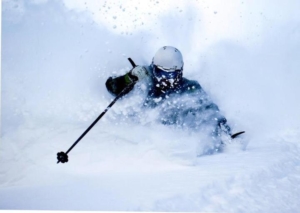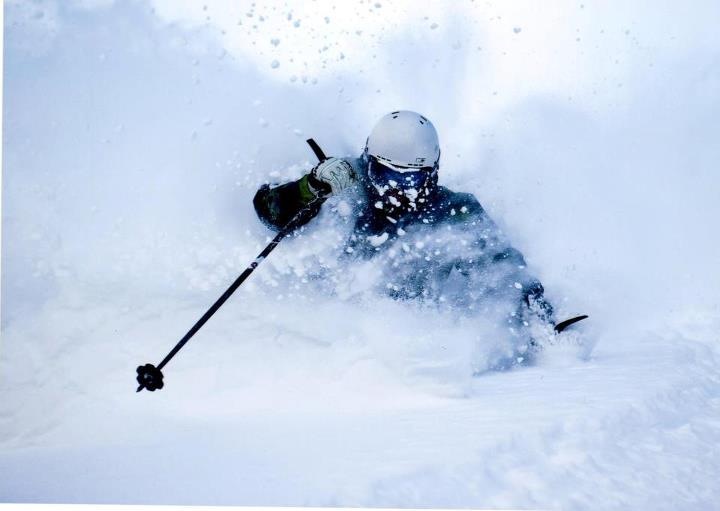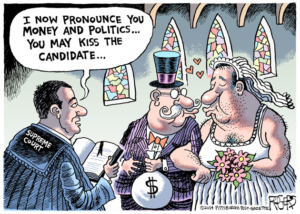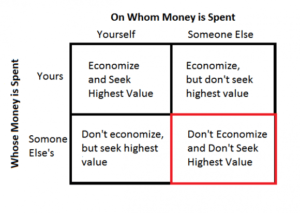Pique Questions – Ralph Forsyth
Please share a brief bio and any relevant experience.
I’ve been a Whistler resident since 1991 and with my wife Stephanie, we’ve raised our sons Jack and Liam here. I’m a small business owner and ski instructor and have served three terms on RMOW Council: 2005-2008, 2008-2011 and again from 2018 to 2022.

Ralphie Boy… Back in the Day!
My council portfolio is Finance and Audit. I serve on eight municipal committees, most notably as Chair of the RMOW Finance and Audit Committee, Secretary of the Whistler Development Corporation, and as a Public Library Trustee.
Council’s major achievements this term have been the delivery of 158 units of employee housing in Cheakamus Crossing and the approval of 35 units of employee housing at Nita Lake and Nordic Estates, adoption of the RMOW’s Official Community Plan and adoption of the “Balance Model” and strategic plan.
What are the top three things you would like to accomplish if elected (please be specific)?

Don’t forget to vote people!
My priorities are to continue to develop employee housing, address community balance, and continue the work of the Council Standing Committee on Governance & Ethics. These last two items are particularly exciting as they have a huge community engagement component.
To address community balance, a lot of work has been done already, most notably the “Whistler Sessions” scenario planning workshops and the concurrent work of RMOW staff on our Balance Model – a long term strategic planning initiative. Our next steps are to gather community responses, engage local stakeholder groups and launch engagement events so that the community is at the forefront of our planning efforts.
Governance and ethics is a mystery topic to many but a real passion of mine. It includes things like the creation of the Council Governance Manual (to be adopted on October 4th), the creation of a Code of Conduct for councillors, and most importantly, a look at re-vamping our municipal committees. These committees are the municipality’s main public engagement tool. We have more than any other jurisdiction in BC and it’s time to take a look at how they can be improved.
What specific, realistic ideas do you have to improve Whistler’s housing situation?
On the housing front, I support infill housing because it helps reverse the gentrification of our neighbourhoods, it would add more affordable housing to Whistler’s inventory, and add increased property tax revenue without increasing our development footprint, and it would keep more families in Whistler. We could also encourage redevelopment in existing neighbourhoods by allowing the rezoning of properties for higher density (think turning a duplex into a 12-bedroom unit). Another idea would be to allow businesses to build new or renovate existing space in commercial or mixed-use zones.

I’ve made the decision to seek re-election because Whistler is at a critical point in its history, and for some, the future looks bleak. The issues we face can be resolved. Whistler has faced difficult times in the past and we’ve confronted those challenges and survived and thrived. What we need is leadership and enthusiasm to see opportunity where it exists, insight to see potential pitfalls and most importantly, the experience to know the difference.

 Logan Swaze
Logan Swaze In case you missed it, the Globe and Mail reported that Trudeau attended a $1,500 a plate diner with some Chinese Billionaires that are keen to open some banks in Canada. In addition to the $1500 cheques to the Liberal Party there was $200,000 for the Trudeau Foundation and an additional $50,000 for, laughably a bust of Trudeau’s dear old dad Pierre. Giving cash to politicians wouldn’t normally raise any eyebrows, but what caused the uproar was the sheer hypocrisy of it. Just three weeks into his term, Trudeau was waving around his “Ethics Guidelines” for Cabinet Ministers. In case you haven’t read it, here’s the salient paragraph: “There should be no preferential access to government, or appearance of preferential access, accorded to individuals or organizations because they have made financial contributions to politicians and political parties.” The main reason the Liberals are playing the cash for access game is because they’re broke and they have no grass roots supporters to create a donor base from. If there’s one thing Justin Trudeau knows, it’s who butters his bread.
In case you missed it, the Globe and Mail reported that Trudeau attended a $1,500 a plate diner with some Chinese Billionaires that are keen to open some banks in Canada. In addition to the $1500 cheques to the Liberal Party there was $200,000 for the Trudeau Foundation and an additional $50,000 for, laughably a bust of Trudeau’s dear old dad Pierre. Giving cash to politicians wouldn’t normally raise any eyebrows, but what caused the uproar was the sheer hypocrisy of it. Just three weeks into his term, Trudeau was waving around his “Ethics Guidelines” for Cabinet Ministers. In case you haven’t read it, here’s the salient paragraph: “There should be no preferential access to government, or appearance of preferential access, accorded to individuals or organizations because they have made financial contributions to politicians and political parties.” The main reason the Liberals are playing the cash for access game is because they’re broke and they have no grass roots supporters to create a donor base from. If there’s one thing Justin Trudeau knows, it’s who butters his bread.